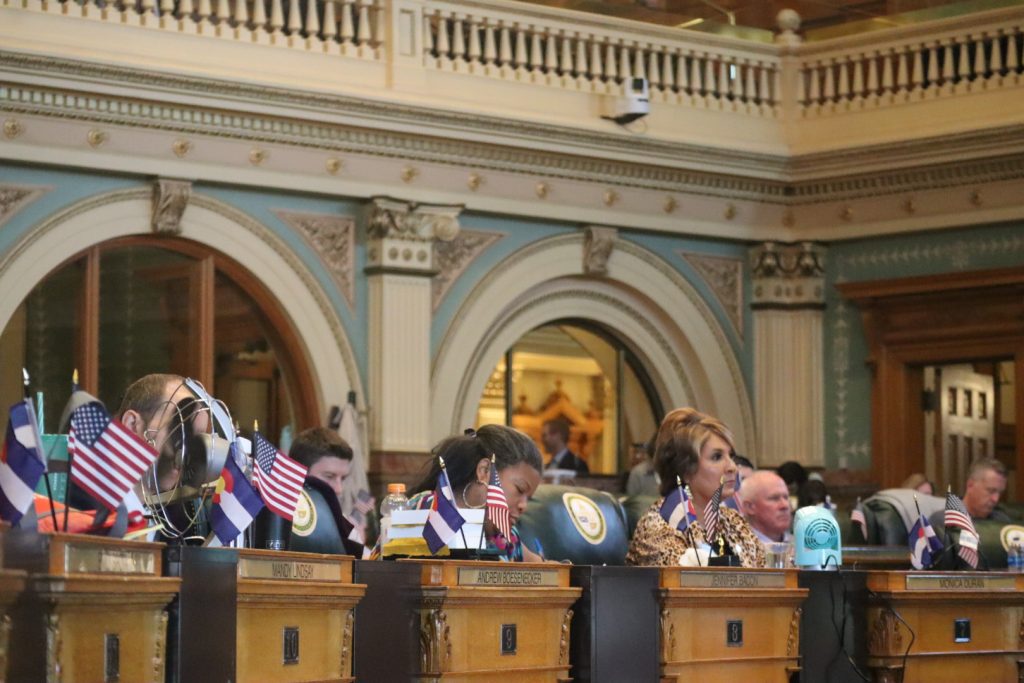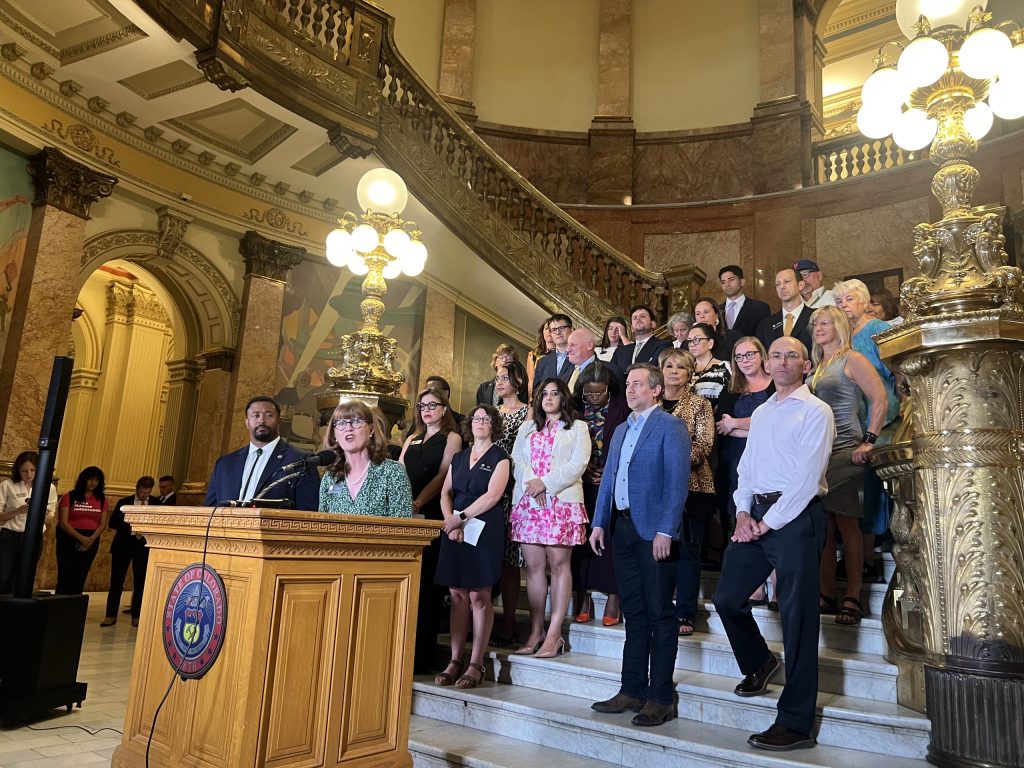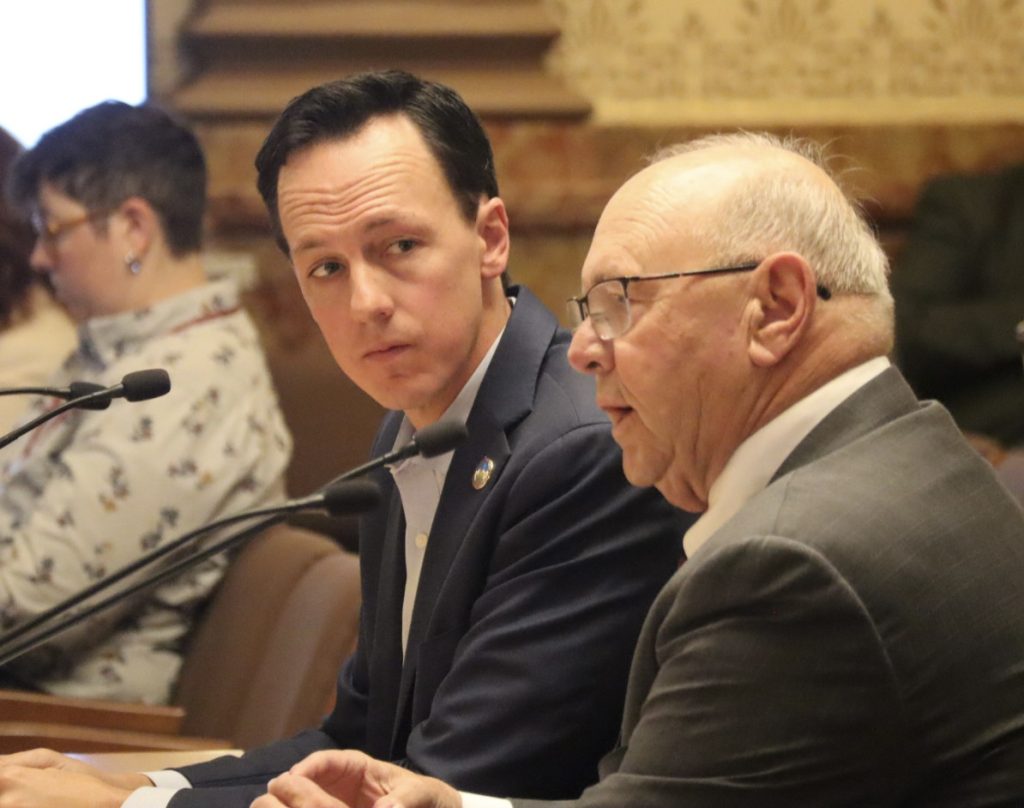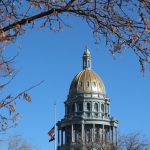With surging health insurance costs set to hit western Colorado hardest, Democrats approve a plan to mitigate coverage losses
State lawmakers representing ski towns and rural areas, which see some of the highest health care costs in the country, say the measure still isn’t enough

Robert Tann/Summit Daily News
Coloradans who shop for their own health care rather than receive it through their job are set to face steep price hikes next year if federal subsidies lapse.
In a bid to mitigate some of the price increases and potential loss of coverage, state Democrats have approved a stopgap plan that would bolster funding for programs aimed at stabilizing the insurance market.
Lawmakers had been meeting since last week for a special legislative session to deal with the fallout of H.R. 1, the federal tax and spending-cut law that was a priority for congressional Republicans and President Donald Trump. The special session ended on Tuesday.
Priorities included finding ways to blunt the expected surge in health insurance premiums for individuals who get their coverage through Affordable Care Act marketplaces. In Colorado, the marketplace is called Connect for Health Colorado.
Insurance costs are going up due to the expiration of the enhanced premium tax credit, a Biden-era subsidy that helped lower individual marketplace premiums and extended that benefit to more people. H.R. 1 did not renew the tax credit, which is set to expire at the end of this year.
Democrats on Tuesday gave final approval to House Bill 6, which would pump $110 million into the state’s Health Insurance Affordability Enterprise, which funds several health insurance subsidy programs. Gov. Jared Polis is expected to sign the measure.
Sen. Dylan Roberts, D-Frisco, said supporting those programs will be especially critical to western Colorado, which continues to see the highest health care costs and rate of uninsurance in the state.
“Some of the counties I represent have the highest health insurance costs on the individual market in the country,” Roberts said during a debate on the Senate floor. “It makes living in these communities — whether it’s a resort community or a rural, agriculture- (or) energy-producing community — incredibly hard.”
Western Slope faces the highest rate increases
There are around 300,000 people enrolled in Connect for Health Colorado.
If the enhanced tax credits expire this year, average insurance premiums on the marketplace could increase 28% statewide and 38% on the Western Slope in 2026, according to the Colorado Division of Insurance.
Premium increases could be even higher, however, for people making over 400% of the federal poverty line, which in Colorado equates to $62,600 a year for an individual and $128,600 for a family of four.
That’s because the Biden-era tax credits, along with bolstering existing subsidies for health plans, also made people making above 400% of the federal poverty line eligible for premium tax credits for the first time. That drove record enrollment in the ACA marketplace this year.
With higher insurance premiums and a complete loss of subsidies, a family of four on the Western Slope making just over $128,000 could have to pay $25,000 more for their premium in 2026, according to the insurance division.
The state’s insurance division believes at least 100,000 people who get their insurance through Connect for Health Colorado could be at risk of losing coverage if the subsidies expire.
Colorado House Speaker Julie McCluskie, D-Dillon, told reporters last week she believes Democrats’ plan to boost funding for state-level subsidies could protect coverage for around 20,000 of those people, but called it “not enough.”

How the bill works
As introduced, HB 6 would have siphoned money from the state’s Unclaimed Property Trust Fund, which maintains about $1.2 billion in lost assets, such as unpaid wages, forgotten bank accounts and abandoned property.
But some Democrats were uneasy with relying on the property fund, and the bill was amended to find the money somewhere else.
The bill now raises $100 million from the sale of tax credits to insurance companies and C corporations, selling those credits for 80 cents on the dollar. That means companies can prepay their taxes at a discounted rate — 80% of what they owe — through the 2033 tax year.
The idea is to generate more tax revenue this fiscal year, even if the state will owe back revenue in future years.
HB 6 also taps an additional $10 million in leftover COVID-19 relief money, which had previously been eyed by Gov. Jared Polis to fund a now-abandoned proposal to build a pedestrian bridge at the Capitol building.
Republicans largely opposed the bill, criticizing the tax credits as a flawed source of funding because that money would have to be paid back.
“We’re just pushing it down the road,” said Sen. Marc Caitlin, R-Montrose, who voted against the measure.
Caitlin’s district includes rural agricultural communities and resort hubs like Aspen and Glenwood Springs. He did partner with Roberts to push through a bill that redirects $264,000 from the state’s wolf reintroduction program to the health enterprise fund — the only bipartisan-sponsored bill to pass during the special session.
But Caitlin said he would’ve liked to have seen a longer-term strategy for how to tackle health care costs and spending, calling the special session “very rushed.”
Republicans introduced bills during the special session that sought to restrict state subsidies for undocumented immigrants and redirect that money to other affordability measures. Those bills were killed by Democrats.

Pressure on Congress
The Democrats’ bill comes with a caveat: It would not take effect if Congress extended the federal subsidies.
Lawmakers from both parties have called on their counterparts in Congress to do so.
Caitlin said he would like to see a more gradual phase-out of the benefits to give people time to adjust. Roberts called it “shameful” that the Republican-controlled Congress has not already acted.
U.S. Rep. Jeff Hurd, a Grand Junction Republican who represents much of the Western Slope, said in a statement last week that he is working on legislation to “help alleviate the immediate removal of these vital tax credits,” but the details of that policy haven’t been released.
Adam Fox, deputy director for the Colorado Consumer Health Initiative, said at the state level, HB 6 is “really important for Colorado’s efforts to stabilize the insurance market,” but noted that it only provides one year of new funding.
“There’s no way that the state can fully make up for the loss of the enhanced Affordable Care Act subsidies,” he said. “Many Coloradans are still going to see very large increases even with this bill and some of the additional support that it provides.”
Fox said there’s still time for Congress to act, but the window is closing. Open enrollment for next year’s insurance plans starts on Nov. 1.
“We have to push Congress to do this as quickly as possible in September,” he said. “Otherwise, there’s not going to be sufficient time for insurers to adjust their rates.”

Support Local Journalism

Support Local Journalism
As a Summit Daily News reader, you make our work possible.
Summit Daily is embarking on a multiyear project to digitize its archives going back to 1989 and make them available to the public in partnership with the Colorado Historic Newspapers Collection. The full project is expected to cost about $165,000. All donations made in 2023 will go directly toward this project.
Every contribution, no matter the size, will make a difference.










